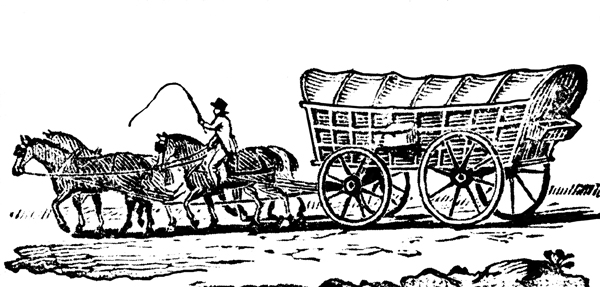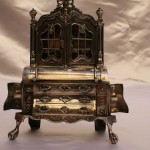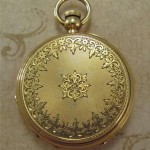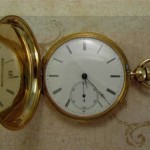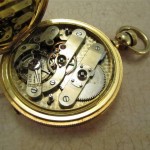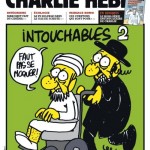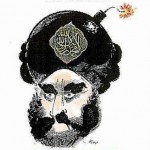From me, Robin. To you, my friends.
Did you ever read a book from it’s end and then finish it at the beginning?
No, you haven’t. Don’t do that here, either.
If you want to find out how we all got here I would advise you to scroll down (way down) to Chapter 1 and I do thank you for that.
I especially give thanks if you know me and you understand that we have all grown up here together, between and across the rivers, sharing 200 years of history.
You may find out a lot about yourselves when reading this book. As I create this book, I find out a lot about myself. It has been guided by divine intervention at every page.
God Bless You.
Chapter 7
THE LAST MEETING
Acts 4:32
And the multitude of them that believed were of one heart and of one soul; neither said any of them that any of the things which he possessed was his own, but they had all things common.
The last meeting of the circle of friends that planned, built, and drove the Great Western Furnace into its glory was held on Friday, November 28, 1856. Bringing food and fond memories, they congregated on their own land, a tiny finger of earth nestled safely between the rivers and far away from the hustle of Town and the abuse of commonality. They all lived, peaceably, in that precious land the natives once called the sacred hunting grounds. This isolated haven of wilderness, surrounded by water, had become their sanctuary and the Great Western, a monument to it.
As it did for those who came before them, the land provided everything needed to sustain a long and sufficient life. The land was constant. All that remained was for the people not to come and mess it all up. Sadly, that was happening again. Our togetherness and our hard work now had to adapt and change because it didn’t fit in. Our way of life, the strong way, the logical way, the best way, we thought, and the safest way was not, necessarily, the most beneficial way to the people who were holding the title and the keys to the stocks in Town.
 Luke and Brandon were both there and my man, Hilton, was with them. Even the owners made the trip from Pittsburgh. They rode down the Ohio River in style on the Steam Boat Missouri. She carried them as far as Paducah. Then, they caught the Grand Turk and drove her straight up the Cumberland River to Dover. Them folks had real money. They just stayed on the River Boat like they owned it.
Luke and Brandon were both there and my man, Hilton, was with them. Even the owners made the trip from Pittsburgh. They rode down the Ohio River in style on the Steam Boat Missouri. She carried them as far as Paducah. Then, they caught the Grand Turk and drove her straight up the Cumberland River to Dover. Them folks had real money. They just stayed on the River Boat like they owned it.
The big money people from out of town spent most of the day meeting and talking with Hilton and the Elam boys. They had one table set up for signing papers and another one next to it laid out with some fine Kentucky Bourbon. It had to be good spirits. The drinking table had a nice cloth draped over it with silver trays and it was being poured from some expensive cut crystal pitchers. That Newell man held his glass up to where the sunlight shined right through it and he talked about it like it was something real special before he ever took the first drink. He smelled it first, too, and swirled it around in the glass. He took in the fine flavor, he savored it. Hilton looked like he tried to savor his some too but, mostly, he just swallowed it. He did say it was good sipping whiskey.
The closing papers had been worked on for weeks and all the details ironed out. Signing them now was only a formality. The businessmen made the transitions necessary to shut down the Great Western’s operations. They had full intentions of bringing her back as soon as the conditions warranted.
We didn’t know the Great Western would never burn again. We didn’t know she was already a ghost.
Ultimately, the owners knew the situation. They were abolitionists from Pennsylvania, after all. They knew full well the dangers involved with slavery. It was why they backed the Elams. They liked the Elam approach to the treatment of workers. They wanted quality in their product. They demanded it and they figured out a long time ago that the formula required to get quality included happy and focused workers. They were very disappointed but not surprised, they said, that the end had come. They didn’t expect it to come in two years. Slavery was an issue that would get worse before it got better.
Everyone connected to the Great Western made a small fortune with their pig iron holdings. 104 straight weeks of ever expanding profit paid for the Furnace three times over and the thought of closing it put the owners in a melancholy mood.
They spoke well of the whole operating experience. They called any venture that returned triple their money a successful one and hoped to someday see a return to business in the land by the rivers. Maybe, as early as Spring. There needed to be a downtime, they all agreed. The safety of the workers was paramount. The day operations resumed would depend on the current tension in the County and how long it lasted.
 The Great Western was a grand lady. The gathering celebrated her victory. She was safe for the picnic and the weather was unseasonably warm. Her fires had been quenched for seven days and the bricks were cool. The younger children played with their marbles and ate endless food and pie around the structure. The older boys played Town Ball out in front and the matches were quite spirited. Some girls cheered the game and their favorite beau while others happily helped their mothers with the feast.
The Great Western was a grand lady. The gathering celebrated her victory. She was safe for the picnic and the weather was unseasonably warm. Her fires had been quenched for seven days and the bricks were cool. The younger children played with their marbles and ate endless food and pie around the structure. The older boys played Town Ball out in front and the matches were quite spirited. Some girls cheered the game and their favorite beau while others happily helped their mothers with the feast.
The adults gathered around the tables and on the table cloths that were spread on the grounds. They were filled with food and laughter and the good times were well remembered by all who were there. God had been good to them and His blessings were bountiful. It showed in their bellies, in their pocketbooks, and on their children’s smiles. Hands were shaken all around and shoulders were held with a celebrated embrace.
Luke said he wasn’t coming if I didn’t make my blackberry pie. He had a piece of it in his hand just about every time I saw him. It was a special togetherness. We were completely disconnected from the rest of that terrible, mean, slave-whipping world. We held our own feeling, as one, and we had one purpose. We protected one another between the rivers.
There was talk going around that Mr. Luke and Mr. Brandon was going to sell their stake in the Great Western. Hilton, sadly, shook his head that it was so. He said we could move back across the River and go back to farming or stay right here and farm. He said we could wait on the Great Western or we could sell everything and move to Chicago, he didn’t care. We had to talk about it, he said. I was excited about all the choices we had, but I didn’t have a clue about which one we would pick. We was just digging in the dirt grapevines ten years ago and now we were talking about moving to Chicago? I just knew that whatever it was, whatever we chose, as long as I was with my man everything would be all right.
Other folks weren’t as confident in the future as I was. They were worried about things changing and about how they would be different. Different, away from the Great Western, was never good. It meant going back. Mr. Luke spoke freely among the assembled men.
“Ladies and Gentleman, to our ownership group represented by Mr. Newell and his family, to Mr. Hilton, and everyone here I thank you all for coming today, on this wonderful day, that the Lord has made for us. Thank you, Ladies, for this abundance of food. I believe I have eaten so much pie that I’m going to turn into a blackberry! I pray that you all have a safe harvest time and prepare well for this winter. Towards that end, towards the preparation of what lies ahead, I have some news I would like to share with you all today.”
Luke took a deep breath and looked around at the faces of those gathered.
“We’ve had a good run men, and ladies. The Great Western has been good for all of us. She has made us prosperous and she made us brave with our successes. But now, we must be smart. These are dangerous and life threatening times that we live in. Make no mistake about that. Our run here wasn’t the long haul of ten and twenty years that we hoped for but it was very good and we’ve learned a lot in these last five years of building and working. We can start this lady back up, and others just like her, when the time is right.”
Proud men with confident smiles agreed. Most were shaking their heads yes and looking at one another with a clearness of direction.
“We’ve come a long way together, friends,” Luke added. “The most important accomplishment that we can claim today is that all of you here are no longer duty bound. My brother and I are most proud to be able to say that, today, all of you here are free men, no longer in bondage. You are free men with free families.”
A loud cheer rose up from the crowd. We were all very happy but, at the same time, we knew not everybody was free. Mr. Luke wasn’t completely right. Jeremiah Porter hadn’t been able to come out to the Furnace to work. He was still on the farm and he still owed a right smart amount on his freedom price. Still, we were happy for everybody else.
“Before now,” Luke delivered, “we always stood our ground. We never backed down from our beliefs or retreated from our positions. Unfortunately, my friends, things have changed. Your lives are now at risk every day simply by coming to work. That is too much strain to bear. Against our owners wishes, but with their full understanding, Brandon and I have sold all of our holdings with the Great Western. Mr. Newell has sold his stake in this project to a firm in Pennsylvania. I’ll not be back after today and I will miss you all very much. I thank you all for your help on this grand experiment. It worked, for a time.”
A load groan came up from those listening to and feeling, his words. But it was a feeling that everybody knew was coming. Luke’s remarks, even though they were expected, fell heavy on everyone’s ears.
“The Committee of Safety rides now,” Luke Elam warned. “Just last week they stopped a free man from Atlanta who was on his way to the Great Western to work. He had heard about us all the way down in Georgia and traveled four hundred miles to get here but when he finally gets to Stewart County, to Parker Town, no less, he is picked up by those ruthless riders. On their accusations of him being a runaway slave, he was robbed, beaten, and thrown into jail. It is incomprehensible. Before that, they burned down Hugh Dotson’s barn, and full of tobacco, because they thought a slave was escaping north, towards the Great Western, and hiding in it. They burnt it down because they said he had a gun. No one was in that barn. The Constable said no one running towards the Great Western would ever be able to hide in it now and he called it all good.
They are targeting our Furnace, friends. Everything they hate starts with us and it will not get better. They have begun monitoring all of our production and our movements, looking for violations of any kind with you workers. They make them up if they can’t find any and it lands you in jail with a beating. Their patrols have closed in on our end of the County and they spend more time up here now than they do across the river towards Clarksville. We’ve decided that to continue our operation puts you all at too great a risk.
As I said, I’ve sold my interest to the highest bidder. Of which, there were many high bids. I recommend that you all do what you will do and you do it now. Collect your monies today and be paid, in full and separate yourselves from this area now. There is not a day to waste. This marks a new era in the life of the Great Western. Many of you may continue working around here and you certainly have that right, but I do not recommend it. You all have the means to leave and if you do not, as free men, see me. The new management has informed me that, due to necessary protective measures that they must take to look out for your safety, if you stay and work you will be paid a far less wage. They said they will have to hire extra security to protect you so I am quite sure that you will have your very own committee of safety, complete with whips, to look out for you, if you know what I mean.”
This statement put bewildered looks on all of the workers. No, they couldn’t work like that, they all agreed.
“This is where Mr. Brandon and myself will go now, back to our tobacco,” Luke relented. “We will let this new age run its course. We ask that all of you come back to the farm with us, if you like. We will farm the crop for a while and plan our options. We have desires to build a Furnace up on Saline Creek, but that must come after a settling period. If you stay here, protect your homes and your family. Brandon and I see grim times ahead.”
Mr. Luke looked sternly in the faces and the eyes of every person there. You would have thought it was your father sitting you down beside him and warning you about the tribulations of life, he was that serious.
“The Committee of Safety aims to stop the escaping of slaves to Kentucky and, believe me, men, they will stop it by all means. They have spilled blood and they will spill more. No one knows how long or how bad or how much will be spilled before they are satisfied. We need to circle our wagons for a time. We need to protect ourselves like never before.”
Times was bad out in the County. We didn’t see all of it but Luke and Brandon did. Somebody new was taken into custody, whipped and even tortured, almost every day. It was cruel and uncivilized. With every new sunrise, it seemed, a new person was picked out from a different community in the County and the Committee of Safety was sent towards that hollow to terrorize, beat, and even arrest them to get them to talk. “Who pays your way,” and, “Where do you get your directions,” was beaten out of them. I was always afraid for my man’s name being mentioned.
Mr. Luke finished up talking to the men. “If you choose not to leave immediately but desire to wait until after the Christmas holiday or even the spring thaw, I beg you to please be aware of the danger and take extra precautions to protect yourselves and your families. Don’t give the Committee any reason to accuse you of being runaways. Keep your free papers with you at all times. Don’t put yourselves in a position of being accused of helping others to escape. Listen to these warnings as they are not without justification. I’ll miss you all. I thank you all from the bottom of my heart for everything you have accomplished here and for everything you have accomplished for yourselves. May God bless you and continue to be with you.”
Mr. Luke went directly to Mr. Hilton next.
“Hilton, you must particularly watch yourself. The eyes of the Committee of Safety are on you now. Please do not help anyone go North after today. These woods have ears and they can hear a man passing through. That quiet step you thought you just took was a loud noise just one hollow over and people soon see where those steps came from. Don’t get caught up, Hilton, in staying right here, right now. We would feel much better if you moved back across the river to Saline Creek with us and we offer you that option today. We insist that you move back with us.” Mr. Luke looked at me and touched me on the shoulder, “Elly, it will be safer. You put your foot down and come on back or keep Mr. Hilton close to the house until next year for his own good!”
“Hilton, you will be caught if you help anyone else,” Luke warned. “There are spies out everywhere. They are beating people whenever they suspect a runaway and people are terrified. They are afraid of everything and saying anything. Do nothing until after the new year, Hilton. Let things calm down. Please wait until these beatings stop before you help another runaway across the trail. Do you promise me, Hilton?”
My man looked at me and put his arm around me and I felt strong under his wing. “We promise,” he said. “We’ll decide this week what our plans will be and we will let you know in a few days, a week, at the most. ”
Luke smiled and nodded his head in satisfaction.
Mr. Brandon always liked to make a big thing out of giving a Freedman his papers. He liked the ceremony and, to tell you the truth, so did the Freedman. Mr. Brandon would read off of a piece of paper that told when and where the man had been bought by Cross Elam. He would tell how much his purchase price was and remind everyone in attendance that this price was now repaid in full. He would tell what the dutiful worker did on the farm and tell as many funny stories as he could remember about the man or the woman. Then, he would ask the man to stand up and say a few words, their very first, as a free man. Finally, Mr. Brandon would give all free men of the Elam estate a certificate, their official “Freedom” papers, and a ten dollar gold piece.
Before, when Mr. Luke spoke, I thought about Jeremiah not being free. He was a young man, strong and smart and everybody liked Jeremiah. He had the fortune, or misfortune, however you look at it, of being the last slave purchased by Cross Elam. Jeremiah volunteered to work the farm for the last two years to make the workload easier. He was darn good on the farm and a natural with the animals. He knew what the tobacco needed a week before it needed it. Mr. Brandon had a farm full of that sacred tobacco and he was responsible for all the hard work and sweat that went with it. Jeremiah Porter helped Brandon Elam, most of all, to get it in. He, alone, and the men he directed put out and brought in ten acres of it every year. It was a substantial achievement for any man, but Jeremiah was only 16. Brandon Elam had no other Lieutenants like Jeremiah Porter.
Working at the farm enabled young Mr. Porter to help his mama along. She took sick with a lingering fever and he was all she had to take care of her. He looked after her every morning, most every day at midday, and every night. It was hard on Jeremiah, but everybody helped him in every way that they could. She died on the second anniversary of the Great Western’s operation. Jeremiah stood strong for her at her funeral. His daddy wasn’t there. Nobody knew where he was. At the slave sales, Cross Elam wouldn’t buy him out of spite and the family got split up. They sent his daddy up north. Luke tried to track him once, but the scent went cold in Hopkinsville.
Brandon Elam called Jeremiah Porter up to the front of the Great Western.
“Jeremiah,” he said. “You’ve been patient in waiting to come to the Furnace. You’ve done outstanding work back on the farm all the while hoping to come here to make more money. Unfortunately, there is no longer a Furnace to come to, as we know it. All that being said, we can only come to one conclusion. Jeremiah Porter, Cross Elam bought you at Dover with your mother on March 5th, 1852 when you were 12 years old. You and your mother were purchased for the sum of $900.00. Your mother went to work in the main house and you bonded with every animal on the farm. You tended horses like a seasoned farm hand, you held your half in yoking the oxen, and you suckered tobacco faster than anybody in the row!”
Everybody laughed and Mr. Brandon went on. “We remember, Jeremiah when you first came here and paid too much attention to the ducklings in the pond and they followed you around for days!” More laughter.
“Jeremiah, we can’t bring you here now. It is too dangerous. But we must do right by you. Jeremiah Porter, you are the lone remaining dutiful worker on the Elam farm. As of this day forward your $900.00 freedom debt for you and your late mother, may she rest in peace, is hereby, paid in full. I present to you today, on behalf of my brother and the Elam estate, your certificate of freedom and your Freedman Papers along with a token of our thanks. We hope that you will stay with us on the farm from now until eternity, the ducks need you, (tearful laughter) but from this day forward, it is your choice as a free man to do whatever you wish and to go wherever you choose. Jeremiah, would you like to say anything now, to your friends, as a free man?”
A loud and resounding cheer rose up from the crowd. It echoed through the valley and up toward the roads to Dover. It was probably heard by those damned committee riders but let them hear it, I said. We earned a cheer.
Jeremiah couldn’t say anything. He wanted to but tears just swelled up in his eyes and he was halfway between grinning and smiling and halfway between crying. He was happy and hugging everybody and we was all glad for him and for his mama’s beautiful memory. His eyes said enough for all of us to understand.
He finally spoke. “I don’t know what to say except, thank you. Thank you all for being my friends and my family. Thank you for accepting me and my Mama. She worked hard those first couple of years here and you all made us feel real welcome. Thank you for my mama, for the way you all helped her in her sickness. Thank you for going back and looking for my daddy. I know you tried to find him. I will always call this my home. No matter where I go in my life, I will always claim the land between the rivers as where I am from. You are my family.”
There wasn’t a dry eye at the Great Western. We celebrated freedom there and we celebrated success there. We played there and we ate there. We worked and prayed there and now, we cried there. Even my strong man, Hilton, fought back some tears but he held me tight and I was unashamed. I buried my head, my wet eyes, and my sniffly nose right in my man’s shoulder and I cried like the baby I held in my arms to think we could be so happy and be so free. Hilton was tickling Samuel and they were laughing. It was a good time.
The meeting broke up soon after that. We all went our own ways feeling good about what we had done with ourselves but sad that our good life at the Great Western was coming to an end. I asked Hilton on the way home if he was upset. I knew how much he loved the Great Western.
“Miss Elly,” he said. “I guess I should be, but Mr. Luke called me off to the side while Mr. Brandon was talking to Jeremiah. He pulled me close by his side and handed me this.”
Hilton dropped a leather pouch into my hand. Inside it were ten fifty dollar gold pieces. Mr. Luke and Mr. Brandon had given Hilton back every penny of his five hundred dollars in freedom money that he had earned and paid them since working at the Furnace. They even returned his farm money back to him. I didn’t know what to say.
On the way home we held each other close in the wagon. We smiled some and we cried some. The children slept and I didn’t care how long or how short the trip would be. Time stood still for us on that night, on that wagon. I can still go there, in my mind. On a crisp night, with the stars overhead, I can still feel my man’s coat beside me. It comforts me.
Along with our emotions, something else was in the air that night. A scary coldness. An unknown feeling. It was like something or someone was out there in the clear darkness, waiting. Waiting for us to make a mistake. I worried that everything was too good to be true. Was life supposed to be this easy? Was the suffering over now? Could we just move away from all the sadness?
We didn’t really know what to expect so we expected anything. When it was rumored the next day that Mr. Luke and Mr. Brandon were so worried about what might happen that they changed all of their money into gold, we took notice. When it was heard that they were burying it in secret places on their farm, we took a warning.
End of Chapter 7
RLB4

